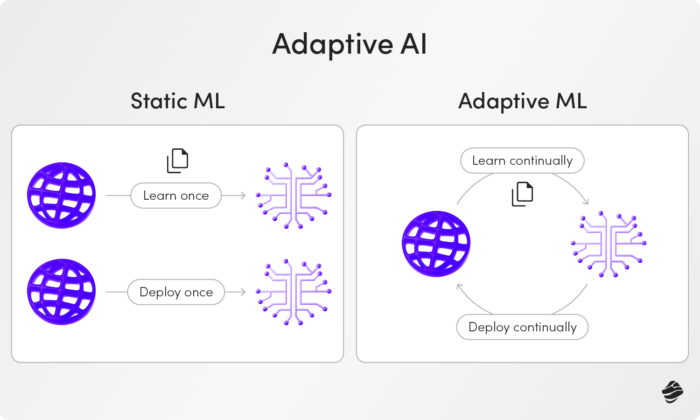- Home
- AI Glossary
- Adaptive AI Definition


Adaptive AI Definition
Adaptive AI Definition
What is Adaptive AI?
Adaptive AI is a subset of AI that emphasises the ability of machines to learn and adapt autonomously without human intervention. This self-learning capability distinguishes Adaptive AI from traditional AI systems, which operate within predefined parameters and don’t change their behaviour unless explicitly reprogrammed.
How does Adaptive AI work?
One of the critical components of Adaptive AI is its reliance on advanced machine learning techniques. These techniques enable the AI to modify its algorithms in response to the data it processes.
At its core, Adaptive AI is designed to improve over time. It continuously learns from new data, adjusts to new scenarios, and refines its algorithms, making it incredibly effective in complex, ever-changing environments. This adaptability is particularly crucial in fields like robotics, where AI must respond to unpredictable physical environments, or online recommendation systems, where consumer preferences constantly evolve.
Where is Adaptive AI used?
The implementation of Adaptive AI spans various sectors. It can be used in healthcare development services for personalised medicine, adapting treatments based on patient responses. Adaptive AI continuously learns from new threats in cybersecurity, enhancing security measures. In the automotive industry, adaptive AI is pivotal in developing autonomous vehicles, which must navigate and respond to an ever-changing driving environment.
In essence, Adaptive AI represents a significant step forward in the evolution of artificial intelligence services. Its ability to learn, adapt, and improve autonomously opens up new possibilities for AI applications, making systems more resilient, efficient, and effective in dealing with the complexities of real-world scenarios.

Ready to discover more terms?




